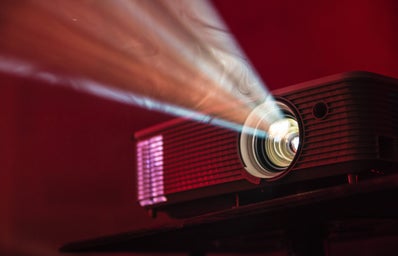The recent release of “Quiet on Set,” a docuseries revealing the sexual exploitation of child actors by Brian Peck on the sets of various famous Nickelodeon shows, has shined a spotlight on the exploitation of minors, specifically in the entertainment industry. In Jennette McCurdy’s recent memoir published in 2022, “I’m Glad My Mom Died,” she also discussed the exploitation she faced on Nickelodeon sets by producer Dan Schneider.
After the docuseries was released, a timely article was published by The Washington Post, which shared that many parents of the child stars and crewmembers were afraid to come clean when this exploitation was happening in the 2000s in fear of retaliation from Dan Schneider, a well-known and successful child star-maker at the time.
Similar to stories the docuseries shares, McCurdy talks in her memoir about the exploitation she experienced during her seven years on Nickelodeon. She describes how controlling and degrading “the Creator,” who allegedly is Schneider though she never directly names him, was to crew and cast members, and she even mentions how he regularly pressured her to consume alcohol at 18-years-old.
The third episode of the docuseries “Quiet on Set” specifically focuses on Drake Bell, who starred in hit shows such as “The Amanda Show” and “Drake and Josh.” In this episode, Bell shares the abuse he faced at the hands of Brian Peck, his former dialogue coach. Peck formed a close bond with Bell when he was 12-years-old and originally auditioned for “The Amanda Show,” and this bond escalated to Peck driving Bell to auditions and eventually persuading Bell’s mom to let him spend the night at Peck’s house. When his parents expressed concern, they were told by producers that Peck was gay and that their negative feelings could be perceived as homophobia. When Bell was 15-years-old, he awoke to Peck sexually assaulting him, which then continued for another six months. Bell recounts his experience as, “The worst thing someone could do to someone as sexual assault.”
Bell and McCurdy are two examples of the extreme forms of exploitation that many Nickelodeon stars during this time endured. On top of their abuse and other child stars’ similar stories, the shows themselves are full of disturbing and sexual innuendos.For example, many people on social media have been re-examining scenes from beloved Nickelodeon shows from the early 2000s and find that they sexualize many of the child stars. Many scenes show characters cracking sexually suggestive jokes through their costumes or use character names that are suggestive of genitalia or other sexual material. Through a deep dive into several Nickelodeon shows, it seems that many of Nickelodeon’s child stars were exploited or humiliated to some degree.
As a dedicated viewer of Nickelodeon shows as a child, it was shocking to hear about the abuse that occurred behind the scenes. I even felt a slight sense of guilt that by supporting the shows, I had supported those in power who were perpetrators.
Realistically, as viewers, what actions can we take? Social media has been a great force in sharing information on cases of child exploitation in the entertainment industry and beyond. As users, we must make sure we do not pass judgment on former child actors who are processing their trauma. If more information about the exploitation of child stars is revealed, social media can be a great tool to pass information and pressure networks to take accountability and implement new ways to protect minors from exploitation.


